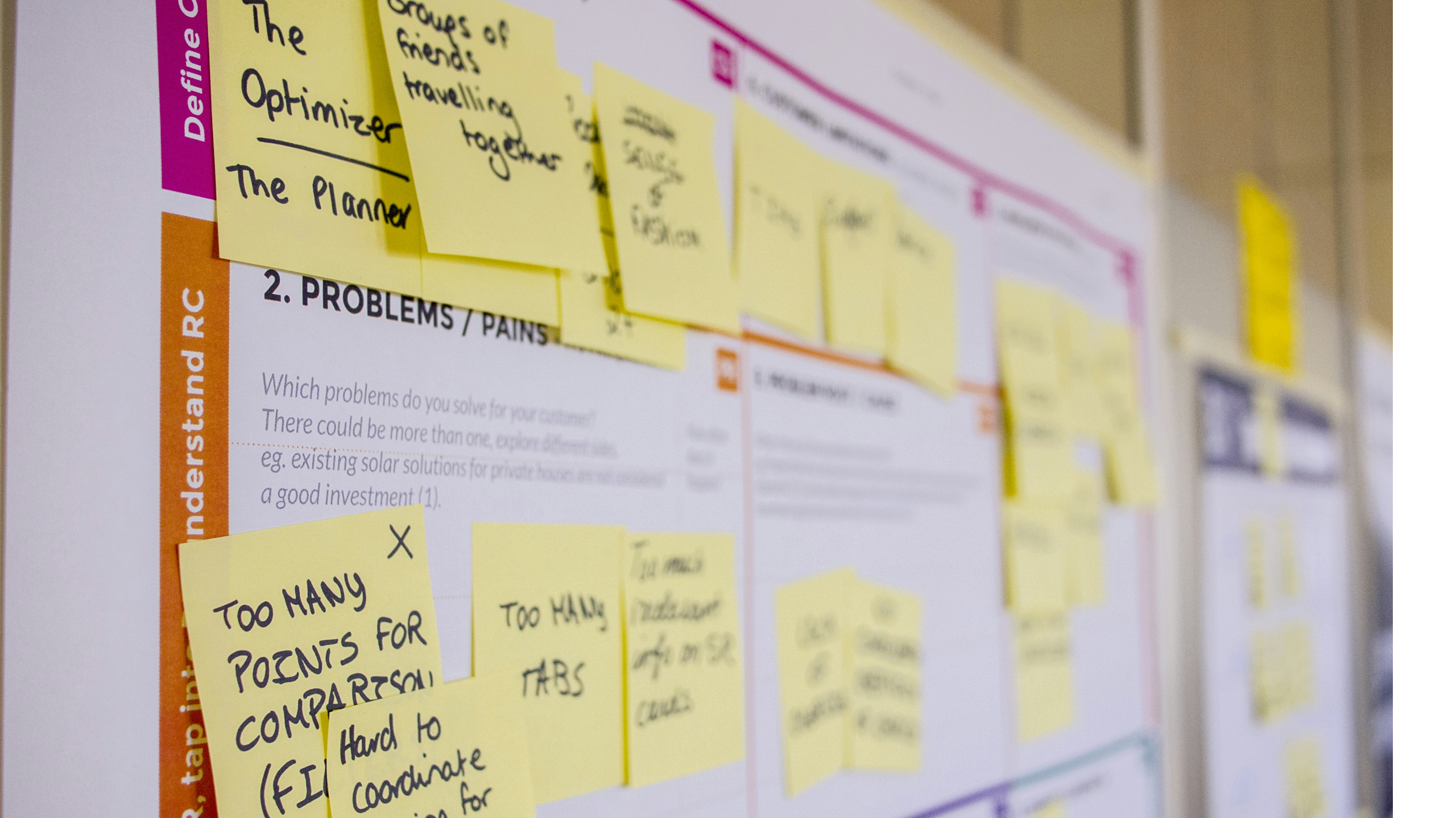Key Takeaways
- Agile methodologies require business analysts to develop skills beyond technical expertise, including adaptability, collaboration, and customer-centric thinking
- Business analysts serve as critical communication bridges between stakeholders and development teams, translating requirements and driving value-focused decisions
- Essential agile skills like adaptability, collaborative communication, problem-solving, and stakeholder management transform business analysis effectiveness
- Modern frameworks like Scrum and Kanban reshape how business analysts approach backlog prioritization and continuous improvement
- Organizations implementing agile business analysis report faster time-to-market, improved customer outcomes, and enhanced operational efficiency
The modern business landscape demands more than traditional analytical skills. As companies increasingly adopt agile methodologies across industries, to remain valuable contributors to cross-functional teams and organizational success.
Agile Projects Demand More Than Technical Skills
Agile environments transform the fundamental nature of business analysis work. Traditional approaches that relied heavily on detailed documentation and linear processes struggle to keep pace with the iterative, fast-moving nature of agile projects. Business analysts now find themselves operating in fluid settings where requirements evolve continuously, stakeholder priorities shift rapidly, and teams must deliver value incrementally.
This shift creates new challenges that extend far beyond technical competency. While understanding data analysis tools and business processes remains important, agile projects demand skills in facilitation, negotiation, and adaptive thinking. Business analysts must navigate ambiguous requirements, manage competing stakeholder interests, and make decisions with incomplete information—all while maintaining focus on delivering customer value.
The complexity of modern agile projects requires analysts who can think strategically about business outcomes while remaining flexible enough to pivot when circumstances change. Those who master these expanded skill sets position themselves as indispensable team members who drive both tactical execution and strategic success.
Business Analysts Bridge Critical Communication Gaps
Business analysts serve as vital connectors in agile environments, facilitating understanding between diverse stakeholders who often speak different professional languages. Technical teams focus on implementation details and system architecture, while business stakeholders prioritize outcomes, timelines, and return on investment. Without effective translation between these perspectives, projects risk misalignment and failed deliveries.
Facilitate Stakeholder Alignment and Requirements Translation
Successful requirement translation goes beyond simply documenting what stakeholders want. Agile business analysts must actively facilitate discussions that uncover underlying needs and translate abstract business concepts into concrete, actionable user stories. This process requires deep listening skills, the ability to ask probing questions, and expertise in structuring complex information into digestible formats for development teams.
Effective stakeholder alignment also involves managing expectations and creating consensus around priorities. Business analysts use techniques like story mapping, backlog refinement sessions, and stakeholder workshops to ensure all parties understand both the ‘what’ and the ‘why’ behind project requirements. Specialized training programs can help business analysts master these critical facilitation skills, enabling them to become more effective communication bridges in agile environments.
Drive Value-Focused Decision Making in Cross-Functional Teams
Agile business analysts influence how teams prioritize work by bringing business context to technical discussions. They help development teams understand the impact of various features on customer satisfaction and business metrics, enabling more informed decisions about trade-offs and sprint planning. This value-focused perspective ensures that limited development resources concentrate on work that delivers maximum business impact.
Cross-functional collaboration requires analysts to adapt their communication style to different audiences. When working with developers, they emphasize technical feasibility and implementation considerations. With business stakeholders, they focus on outcomes, timelines, and competitive advantages. This versatility in communication strengthens team cohesion and accelerates decision-making processes.
Essential Agile Skills Transform Business Analysis Effectiveness
The transition to agile methodologies demands a fundamental shift in how business analysts approach their work. Traditional skills remain valuable, but agile environments require additional competencies that enable analysts to thrive in collaborative, fast-paced settings where change is the only constant.
Adaptability to Handle Changing Requirements
Agile projects accept change as a natural part of the development process rather than treating it as a disruption. Business analysts must develop comfort with ambiguity and the ability to pivot quickly when new information emerges or market conditions shift. This adaptability extends beyond simply updating documentation—it requires strategic thinking about how changes impact project timelines, resource allocation, and overall business objectives.
Successful agile analysts view changing requirements as opportunities to deliver better solutions rather than obstacles to overcome. They maintain flexible mindsets that allow them to reassess priorities without becoming overwhelmed by uncertainty. This perspective enables them to guide teams through transitions while maintaining focus on value delivery.
Collaborative Communication Across Technical and Business Teams
Effective collaboration in agile environments requires more than good communication skills—it demands the ability to facilitate productive discussions among people with different expertise, priorities, and communication styles. Business analysts must create psychological safety that encourages open dialogue while managing conflicts that arise from competing interests or perspectives.
Strong collaborative communicators also know when to step back and let others lead discussions. They recognize that their role involves enabling team success rather than controlling every conversation. This collaborative approach builds trust and empowers team members to contribute their expertise more effectively.
Problem-Solving Within Iterative Development Cycles
Agile development cycles compress traditional problem-solving timelines, requiring analysts to diagnose issues and propose solutions rapidly. This accelerated pace demands structured approaches to problem identification, root cause analysis, and solution evaluation. Business analysts must balance thoroughness with speed, ensuring they gather sufficient information to make good decisions without causing delays.
Iterative problem-solving also involves learning from each development cycle and applying those insights to improve future sprints. Analysts contribute to retrospective discussions by identifying process improvements and sharing lessons learned from stakeholder interactions. This continuous improvement mindset strengthens team performance over time.
Customer-Centric Stakeholder Management
Agile methodologies prioritize customer value above all other considerations, requiring business analysts to maintain constant focus on end-user needs and experiences. This customer-centric approach influences how analysts gather requirements, prioritize features, and measure success. They must balance customer desires with business constraints and technical feasibility while advocating for solutions that genuinely improve user outcomes.
Effective stakeholder management in agile environments also involves educating stakeholders about agile principles and helping them adapt their expectations to iterative delivery models. Business analysts serve as change agents who guide organizations through cultural shifts required for agile success.
Agile Frameworks Shape Modern Business Analysis
Different agile frameworks create unique contexts that influence how business analysts contribute to project success. Understanding these frameworks enables analysts to adapt their approaches and maximize their effectiveness within specific organizational structures and project types.
Scrum Environments Require Strategic Backlog Prioritization and Sprint Planning
Scrum’s structured approach to agile development creates specific opportunities for business analyst contributions. During backlog refinement sessions, analysts help product owners evaluate user stories, estimate complexity, and prioritize items based on business value. Their input ensures that development teams understand not just what to build, but why specific features matter to customers and the business.
Sprint planning sessions benefit from business analyst participation because they bring contextual knowledge about stakeholder priorities and market conditions. This perspective helps teams make realistic commitments about deliverables while maintaining alignment with broader business objectives. Analysts also contribute to sprint reviews by gathering stakeholder feedback and translating it into actionable insights for future iterations.
Kanban Enables Continuous Flow and Data-Driven Priority Adjustments
Kanban’s emphasis on continuous flow and work-in-progress limits creates opportunities for business analysts to optimize team efficiency through data analysis and process improvement. By monitoring cycle times, identifying bottlenecks, and analyzing throughput metrics, analysts help teams make informed decisions about capacity and resource allocation.
The flexible nature of Kanban boards also allows analysts to respond quickly to changing business priorities without disrupting established sprint commitments. This responsiveness proves valuable in fluid business environments where customer needs and market conditions evolve rapidly. Analysts can reprioritize work items based on real-time feedback and emerging opportunities.
Agile Business Analysis Drives Organizational Transformation and Career Growth
Organizations that successfully implement agile business analysis practices report significant improvements in project outcomes, customer satisfaction, and operational efficiency. A financial institution that adopted agile methodologies to overhaul legacy systems saw substantial reductions in time-to-market for new features, with business analysts playing vital roles in aligning technical capabilities with strategic business goals.
In healthcare settings, agile business analysis facilitated shifts toward patient-centric care models by improving communication between clinical and administrative departments. This collaboration led to improved patient outcomes and streamlined operational processes. Technology firms have used agile business analysis to accelerate innovation cycles, bringing advanced solutions to market faster than competitors using traditional methodologies.
The career benefits for business analysts who develop agile competencies are substantial. Professionals with Agile Analysis Certification often earn higher salaries and demonstrate expertise in applying business analysis within agile frameworks. These certifications validate expertise in applying business analysis within agile frameworks, making certified professionals more attractive to employers seeking agile transformation leaders.
Many companies, including BBVA, Spotify, ING, Lego, Microsoft, and Bosch, have used agile transformations to boost innovation, speed, and customer focus. Their success demonstrates the strategic value that skilled agile business analysts bring to organizations committed to continuous improvement and market responsiveness.
For business analysts looking to advance their agile capabilities and advance their careers in fluid environments, success are available.


Comments are closed.